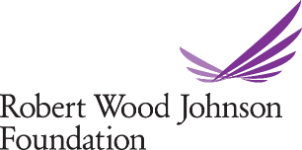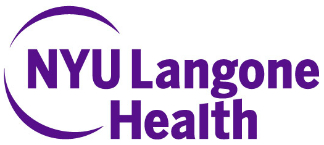About Us
Why City Health Dashboard?
More than 80 percent of U.S. residents live in urban areas. But until recently, few measures have been available to assess health, the factors that shape health, and the drivers of health equity at the city level. That's where the City Health Dashboard comes in. Our goal is to provide communities and city leaders with an array of regularly updated data specific to neighborhood and/or city boundaries – such as life expectancy, park access, and children in poverty – to improve the health and well-being of everyone in the community.
Created by our team at NYU Grossman School of Medicine's Department of Population Health, and with support from the Robert Wood Johnson Foundation, the City Health Dashboard launched in 2018. The Dashboard now offers data on over 40 measures of health and drivers of health for over 970 cities across the U.S. – all cities over population 50,000 plus a growing set of smaller places. We're committed to constant improvement, over the years adding new measures and features, including multi-year data, new data visualizations, and easier data access through an API.

Equipped with the Dashboard’s data and action-supporting resources, local leaders have a clearer picture of the challenges facing their communities and how to address them. City leaders and partner organizations have used the Dashboard to target public health investments in high-need neighborhoods, to expand support for city budget allocations for health, and to design evidence-based community health improvement efforts. Read more about our impact here.
Dashboard data is also used in educational settings around the world. University students studying public health, economics, healthcare administration and more are using Dashboard data for real-life case studies and applied learning. Visit our Educational Resources page for more, including specially-designed high school lesson plans based on the Dashboard.
See our FAQ, or Technical Documents for specific questions.
Tour the City Health Dashboard
Explore the City Health Dashboard live with our team at our regular Virtual Office Hours. Or, take a look at our video series to walk you through the site. The Dashboard Roadmap is a series made up of bite-sized video tutorials on some of the Dashboard's best features, like comparing metrics, take action resources, and much more. Read more about this series, check out the introduction below, and find all the latest episodes in this playlist.
Curious how to journey through the site? Check out our User Journey series, which explain why and how to use some of the tools and resources we offer on the site through the journeys of example users. These videos make it easier to inspire you and your collaborators to move from data to action with the City Health Dashboard. Read more about this series, watch an episode below, and see all of the videos in this playlist.
Equip cities with a one-stop resource for comprehensive, reliable data to help them build healthier and more equitable communities.
Our Team
Jacqueline Betro, MPA, Research Project Manager
Samantha Breslin, MPA, Program Supervisor
Dana Duong, MPH, Research Analyst
Marc N. Gourevitch, MD, MPH, Primary Investigator
Yoomin Hwang, Project Coordinator
Neil Kleiman, PhD, Co-Primary Investigator (City Policy/Partnerships)
Taylor Lampe, MPH, Senior Data Analyst
Yuruo Li, PhD, Senior Data Analyst
Shirley Liang, PharmD, MSPH, Data Analyst
Isabel Nelson, MPH, Senior Data Analyst
Eileen Shea, MPH, Data Analyst
Ben Spoer, PhD, Program Director
Jay Stadelman, MPH, Data Analyst
Lorna E. Thorpe, PhD, Co-Primary Investigator (Methods)
Anne Vierse, MS, Data Analyst
Hannah Wade, MPH, Senior Population Health Policy Analyst
Additional data analysis by:
Sarah Conderino, MPH, Surveillance Data Scientist, Department of Population Health, NYU School of Medicine
Sponsors

For more than 40 years the Robert Wood Johnson Foundation has worked to improve health and health care. We are working with others to build a national Culture of Health enabling everyone in America to live longer, healthier lives. For more information, visit www.rwjf.org. Follow the Foundation on Twitter at www.rwjf.org/twitter or on Facebook at www.rwjf.org/facebook.

The Department of Population Health at NYU Langone Health unites the fields of medicine and public health to improve the health of populations in New York City and around the globe and to educate students to become leaders in healthcare delivery, health policy, and public health. Partnering with colleagues at NYU School of Medicine, NYU Langone Health, NYU Langone Hospital – Brooklyn, Bellevue Hospital, and diverse community and private sector organizations, the Department conducts basic and applied research to improve the quality and effectiveness of healthcare and to prevent and better manage disease. Trained in diverse disciplines, the Department's more than 70 core faculty and 200 dedicated staff specialize in research areas including: healthcare delivery science, health economics and policy, epidemiology, biostatistics, medical ethics, early childhood development, community health and health equity, decision science, and tobacco, alcohol, and drug use prevention and treatment. Visit us at med.nyu.edu/pophealth.
Academic Partner

Since 1938, NYU Wagner has been educating the world's future public service leaders to translate ideas into actions that have an effective and lasting impact on the public good. Our faculty's research changes the way people frame, understand, and act on important public issues. We provide our students with critical skills, access to all that New York City has to offer, and a deep understanding of context surrounding public service challenges—which they use to improve cities and communities across the globe. We offer a Master of Public Administration in Public & Nonprofit Management & Policy, Master of Public Administration in Health Policy & Management, Master of Urban Planning, Master of Science in Public Policy, Executive Master of Public Administration, and PhD in Public Administration.
Bridging Partners
The National Resource Network (the Network) develops and delivers innovative solutions to American cities to help them address their toughest economic challenges. The Network works with local leaders to identify practical solutions, share real-world expertise and best practices, and help cities develop the tools and strategies they need to grow their economies.
Initially funded with $10 million from the U.S. Department of Housing and Urban Development (HUD), the Network designed an innovative approach that leverages the expertise, partnerships, and resources of the public and private sectors to help cities comprehensively tackle their most pressing challenges. The Network provides cities with customized tools and advice to build strategic partnerships, strengthen their economic competitiveness, and marshal public and private sector resources.

The National League of Cities is dedicated to helping city leaders build better communities. NLC is a resource and advocate for 19,000 cities, towns and villages, representing more than 218 million Americans. The Institute for Youth, Education, and Families, a special entity within the National League of Cities, helps municipal leaders take action on behalf of the children, youth, and families in their communities.

The International City/County Management Association (ICMA) focuses on creating and supporting thriving communities by working with our more than 11,000 members to identify and speed the adoption of leading local government practices in order to improve the lives of residents. ICMA provides its membership with a variety of tools, professional development opportunities, research, publications, data and information, technical assistance, and training. Working in partnership with organizations such as NYU and programs like the National Resource Network, ICMA helps develop and support technical assistance programs and platform-based services. Learn more about ICMA work at icma.org.
Communications and Web Support

Burness created content for this website, under the direction of the Department of Population Health at NYU Langone Health. Burness is a team of veteran communications and digital strategists, policy experts, writers and designers. We develop and execute communications strategies that move issues and elevate organizations, from branding, messaging and research translation to advocacy and public engagement campaigns.

This website was developed by Forum One, under the direction of the Department of Population Health at NYU Langone Health. Forum One amplifies the impact of mission-driven organizations through transformational digital solutions. Forum One works with nonprofits, associations, foundations, think tanks, cultural institutions, and government agencies all over the world to understand their challenges and implement forward-looking, effective solutions that have an impact. Forum One was responsible for the creative and user experience design, data visualization, and technical development of the website.